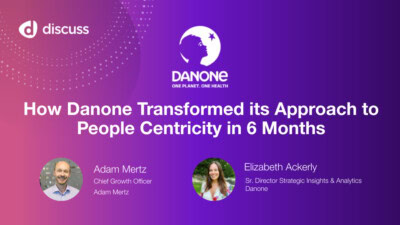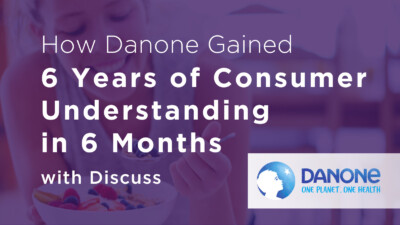The Rise of Intelligent AI Agents in Consumer Research – And Why Humans Still Matter

AI Agents Are Changing Research—But People Make It Matter
AI is no longer a futuristic concept—it’s here, reshaping how brands learn about their customers. From tracking sentiment to sorting feedback in seconds, intelligent AI agents are raising the bar for what’s possible in consumer research.
But as these tools become more sophisticated, there’s a critical question every team needs to ask: How do we harness AI without losing the human understanding that brings research to life?
Below, we’ll explore how AI agents and human insight can work hand in hand, and why balance is the key to success.
Shifting the Research Landscape
Intelligent AI agents have transformed what research teams can accomplish. What used to take weeks—categorizing feedback, spotting trends, preparing reports—now happens in hours.
These systems can:
- Track behaviors and sentiment in real time
- Organize large volumes of responses without bias
- Surface emerging patterns quickly
As expectations grow, companies are no longer satisfied with static reports. They want insights that keep pace with changing audiences.
New Roles for Automation
Automation has taken over many time-consuming research tasks. AI agents now handle:
- Categorizing open-ended feedback
- Highlighting recurring themes
- Drafting initial summaries for review
This doesn’t just improve efficiency—it gives teams more space to focus on interpreting results and shaping strategy. With the right AI research platform, researchers can spend less time managing data and more time uncovering what really matters.
The Human Edge in Emotional Insight
No matter how advanced algorithms become, there’s one thing machines can’t replace: human intuition.
AI can detect tone, identify keywords, and even estimate sentiment. But it can’t always explain why someone feels a certain way or pick up on unspoken nuances. Cultural references, sarcasm, or subtle contradictions often slip past even the most advanced systems.
Human researchers bring:
- Context and cultural awareness
- Sensitivity to emotional undercurrents
- The ability to read between the lines
Especially when working with vulnerable audiences or sensitive topics, people bring empathy and understanding that AI can’t replicate.
From Data Collection to Faster Decisions
Modern research isn’t just about gathering information. It’s about transforming feedback into timely, actionable decisions. AI agents help companies react in the moment rather than rely on outdated data.
Instead of waiting weeks to compile findings, teams can:
- Monitor sentiment shifts as they happen
- Spot rising concerns before they escalate
- Pivot strategies based on fresh insights
But technology alone doesn’t create clarity—human interpretation still guides the story behind the data.
The Limits of Machine-Led Analysis
Even the smartest AI has blind spots. Machine learning relies on patterns in historical data. When behavior falls outside those patterns, AI can get confused or draw the wrong conclusion.
Some examples:
- A phrase used ironically may be flagged as negative
- Cultural slang can be misclassified
- Complex emotions may be oversimplified
That’s why pairing automation with human review is essential. Analysts can:
- Double-check AI-generated themes
- Reclassify feedback that doesn’t fit neatly
- Spot contradictions the system can’t resolve
Together, they create a richer, more reliable understanding.
Blending Human and Machine Strengths
Think of AI agents as powerful assistants—not replacements. Machines bring speed, consistency, and scalability. People bring creativity, purpose, and empathy.
When these strengths combine, research becomes:
- Faster without sacrificing quality
- Broader without losing depth
- More accurate while staying human-centered
This collaboration sets a higher standard than either side could achieve alone.
What Algorithms Can Miss
Machine learning thrives on predictability. But when customers break patterns—by behaving in unexpected ways or expressing emotions differently—AI often struggles to adapt.
Human researchers can spot these moments and ask:
- Why did this happen?
- What does this shift mean?
- How should we respond?
These deviations often lead to the most valuable insights, helping brands stay ahead of change instead of reacting after the fact.
Ethics in Automated Research
Automated systems process data at scale, but they don’t understand the ethics behind it. Respecting consent, privacy, and intent remains a human responsibility.
Without careful oversight, it’s easy for data to be stripped of context or misused. As AI innovation accelerates, teams must set clear standards for:
- How data is collected
- Who has access to it
- How findings are applied
Protecting trust and transparency is just as important as improving efficiency.
Why Human Judgment Still Leads
AI can organize and analyze, but it can’t decide what matters. Judgment—choosing what to prioritize, how to respond, and why—is a uniquely human skill.
Treating AI output as the final word risks missing the bigger picture. Skilled analysts are essential for:
- Interpreting nuance
- Weighing ethical considerations
- Bringing purpose to raw data
Ultimately, human judgment is what makes research insights actionable and meaningful.
The Future of Research Collaboration
The future of consumer research doesn’t belong to machines or people alone—it belongs to both.
Teams that embrace shared systems will lead the way. They’ll use AI agents to accelerate discovery while relying on human experience to keep research grounded and relevant.
AI expands what’s possible. Human insight ensures it has purpose.
Choosing the Right AI Tools
The best research platforms blend automation with human input. When evaluating AI tools, look for options that:
- Scale as your needs grow
- Integrate with your workflows
- Offer reliable transcription and language support
- Provide audio and video capabilities for richer feedback
Before choosing a platform, ask:
- Can it adapt to different research styles?
- Does it support ethical data practices?
- What kind of support and training are included?
A thoughtful approach upfront helps avoid setbacks and ensures your research stays effective.
Intelligent AI Agents Work Best with Human Oversight
AI research platforms make data collection faster and more efficient. But true insight happens when technology supports human judgment—not when it tries to replace it.
At Discuss, we blend AI-powered automation with expert analysis to help leading global brands turn conversations into decisions. From setup to strategy, our platform keeps research authentic, timely, and human.
Ready to learn more? Let’s talk about how we can help you understand your customers better.
Ready to unlock human-centric market insights?
Related Articles

What Is Vibe Coding for Market Insights? And Why It Matters for Modern Marketers
By Adam Mertz, Chief Growth Officer at Discuss Let’s be honest. Most marketers don’t wake up thinking, “I need to…
By Adam Mertz, Chief Growth Officer at Discuss Let’s be honest. Most marketers don’t wake up thinking, “I need to…

When to Use Human-Led vs AI-Led Interviews for In-Depth Customer Feedback
AI is everywhere right now. It’s in your inbox. It’s on your social media. It’s taking notes in your meetings. …
AI is everywhere right now. It’s in your inbox. It’s on your social media. It’s taking notes in your meetings. …

6 Ways AI Agents are Redefining Global Human Understanding
Shatter surface-level thinking and build true human understanding with AI Agents We’re overwhelmed by data—but starved for connection. In an…
Shatter surface-level thinking and build true human understanding with AI Agents We’re overwhelmed by data—but starved for connection. In an…



